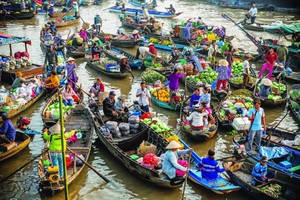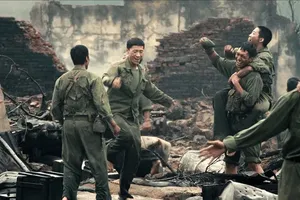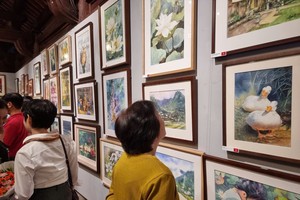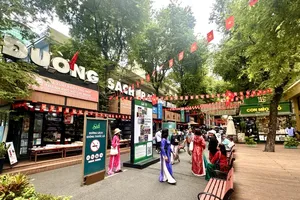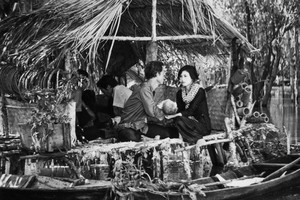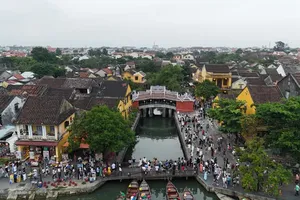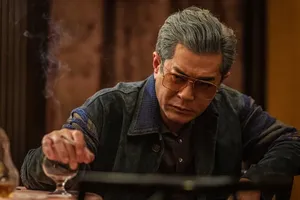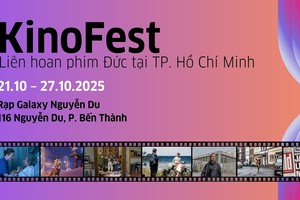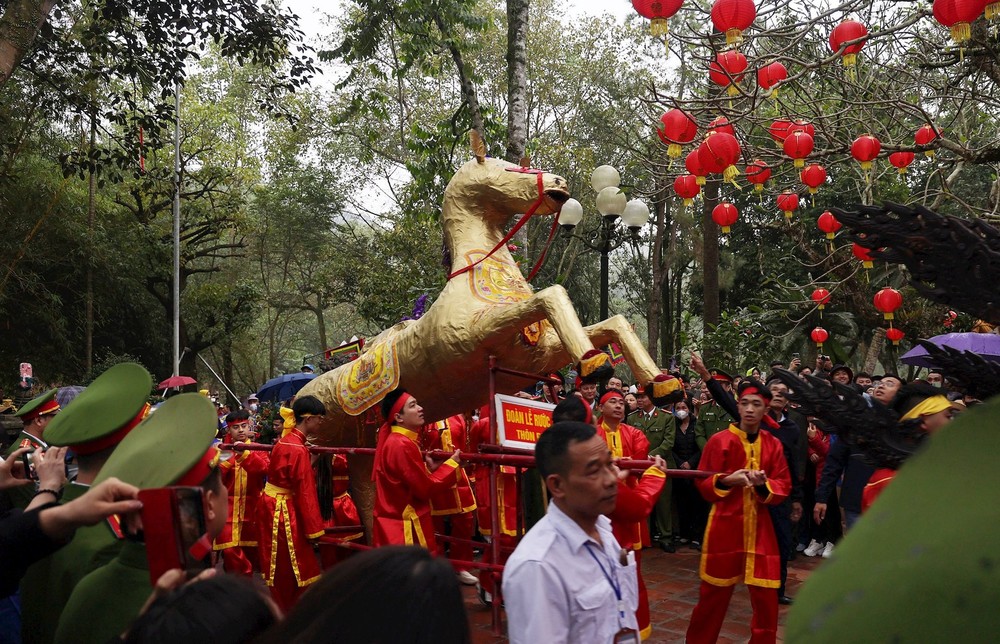
The festival includes a wide range of traditional rituals and folk games, such as stilt walking, balancing a bridge, breaking earthen pots, and cooking competitions, attracting thousands of local people and visitors.
The Saint Giong Festival was recognized as an Intangible Cultural Heritage of Humanity by UNESCO in November 2010.
Saint Giong Festival is a traditional event held annually from the 6th day to the 12th day of the fourth lunar month in several places within Hanoi, especially at the Soc Temple in Soc Son District and at Phu Dong village in Gia Lam District, Hanoi.
The 9th of the fourth lunar month is the major day of the event at Phu Dong where the national hero, called Emperor Phu Dong was born.
According to legend, the national hero was a son of a woman in Giong Village. She was pregnant after stepping onto a giant footprint in the field. The kid, called Giong, was weak and couldn’t walk and talk. When the sixth Hung King called on all people to resist the Chinese invaders, the three-year-old child suddenly stood up and wanted to be fed. The villagers provided him with food for three days. Giong then straight and grew into a giant. He rode an iron horse given by the King and defeated Chinese invaders around. After the victory, he rode his iron horse onto the Soc Mountain and flew up into the sky.
People called him Saint Giong and organized a festival to commemorate and show their gratitude to the hero.
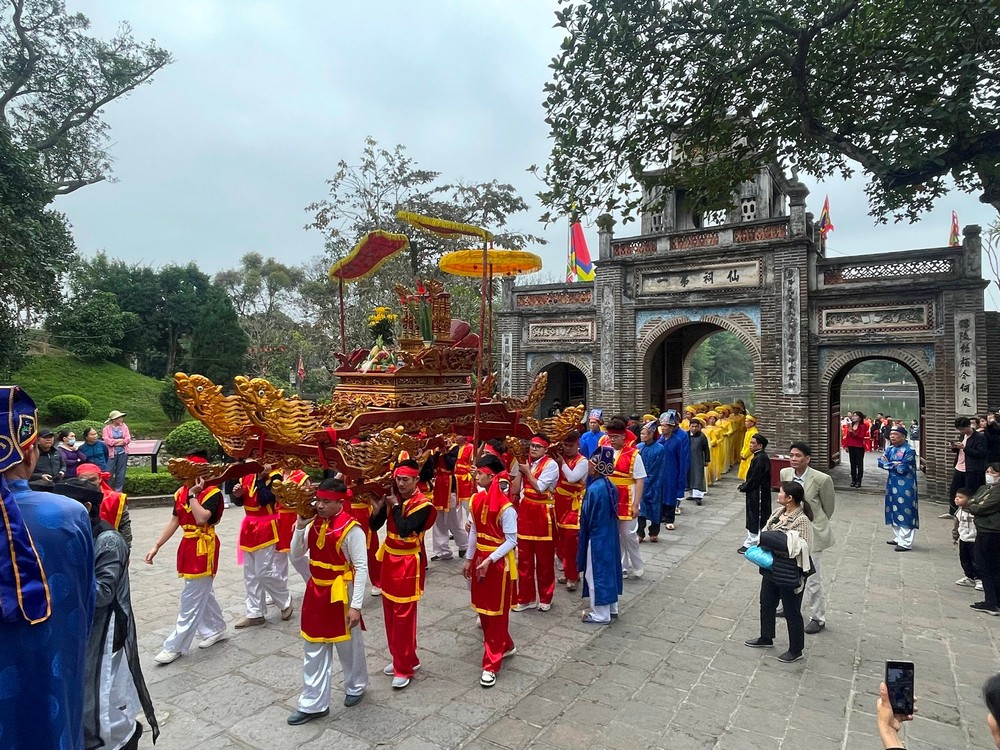
On the same day, a large number of people flocked to the Temple of King An Dương Vương, also known as Thuong Temple, in Co Loa village, Đong Anh District in Hanoi to attend the Co Loa Festival.
The annual event is held to pay tribute to King An Duong Vuong, founder of the ancient Vietnamese kingdom of Au Lac, who led the fight against foreign enemies and ruled the country for 50 years in the 3rd century BC.
Co Loa Temple Festival is one of the oldest festivals in Vietnam. It is organized from the 6th day to the 16th day of the first lunar month by the hamlets of the Co Loa Commune in Dong Anh District.




